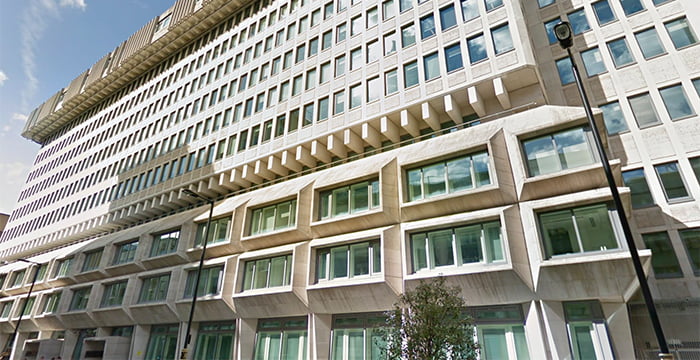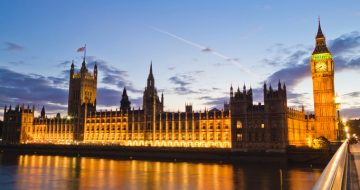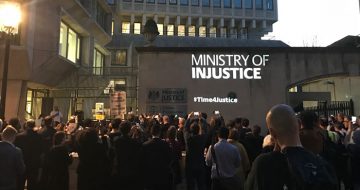As MPs vote against reversing legal aid changes

The Ministry of Justice (MoJ) has been accused of lying by the likes of The Secret Barrister over its knowledge of an internal report into the impact of unrepresented defendants on the criminal justice system.
The legal Twitterati has been set alight by an article published last night on BuzzFeed, which claims the government department “concealed the existence of a 36-page internal report”. This report “contained explosive testimony” from lawyers and judges about the rising number of defendants appearing without representation.
This is an INCREDIBLE scoop. The Ministry of Justice refused to release its research on unrepresented defendants in criminal courts. It was then forced by FOI to release, and published 6 pages. “This is all we have,” it claimed.
It lied.@emilydugan has the full leaked report. https://t.co/ZTOT3Lo2tn
— The Secret Barrister (@BarristerSecret) May 8, 2018
The news site last week reported on a six-page summary of 2015 research which demonstrated that litigants-in-person result in longer hearings and myriad other problems. This was based on interviews with crown court judges and prosecutors.
BuzzFeed says it tried to obtain fuller research beyond the six pages, but that the MoJ “repeatedly insisted, including in two on-the-record statements, that the six pages were the report in its entirety, despite it being labelled a summary and containing no direct testimony or data”. But now, it reports, “the original report has been leaked in full”.
This has caused a social media furore. Not least has The Secret Barrister’s tweet that the MoJ “lied” racked up more than 2,000 shares, plenty of other lawyers, like Nicholas Diable, have vented their concerns.
Not only did the MoJ lie about this report, but it turns out judges have been telling them about the problems and risks of unrepresented defendants for more than two years but they simply don't give a monkey's.https://t.co/KE44jr9plA
— Nicholas Diable (@Defencebrief) May 8, 2018
Another vocal commentator was family expert Zoe Saunders, who described the contents of the report as “horrific”. Extra information garnered from the longer report included: that preparation for cases involving unrepresented defendants was “more extensive or difficult” and that the impact of not having a lawyer may create more hearings and thus cost the court system more.
Another revelation from the more recently released report is, in BuzzFeed‘s words: “The gulf between MoJ predictions on the minimal impact of legal aid changes on criminal cases and the reality experienced by judges.”
This was revealed on the same day (yesterday) that MPs voted against a motion brought by Labour that sought to reverse criminal legal aid reforms. The Shadow Justice Secretary, Richard Burgon, had urged the government to “go back to the drawing board” on its changes to the Advocates’ Graduated Fee Scheme (AGFS), which it’s understood will result in further cuts to legal aid lawyers’ income.
Though 252 MPs voted in favour of Labour’s motion, 300 voted against it.
These ‘noe’ voters included: Bob Neill, the chair of the Justice Committee, David Gauke, the Justice Secretary, and previous Justice Secretaries Liz Truss and David Lidington. The former, Neill, said during the debate yesterday evening that there are very serious problems at the criminal bar. However, the likes of the last-minute brief and problems with disclosure will not be solved by reversing the AGFS.
@AlexChalkChelt tells @HouseofCommons “we spend more on the aid effort in Syria alone than the entire #legalaid budget” #Time4Justice @TheCriminalBar
1hr 27m 30 shttps://parliamentlive.tv/Download/Index/f2f76958-de7f-4282-ad8c-88429647a197— James Rossiter (@JamesDRossiter) May 8, 2018
Changes to barrister remuneration have prompted swathes of criminal lawyers to refuse new publically-funded work in protest. Over 100 chambers are now involved in the quasi-strike action, including names like Carmelite, Doughty Street, Furnival, Garden Court, Lamb Building and Matrix. Outside of London and supporting the cause are the likes of 1 High Pavement (Nottingham), 9 Park Place (Cardiff), 12 College Place (Southampton) and Linenhall Chambers (Chester).
Today, it was revealed the Criminal Bar Association (CBA) would be escalating the strike action to include a “no returns” policy on legally-aided crown court defence cases.
Usually, if a barrister is unable to attend their own hearings because of diary clashes, etc, they’d return instructions to their solicitor who would then return the work to another barrister. The CBA is now recommending that from 25 May barristers do not accept returns. This is likely to impact junior barristers in particular as they often pick up returns.
UPDATE – 9:20am, 10 May 2018
The MoJ has now issued a comment on this. An MoJ spokesperson said:
“We have complied fully with the FOI Act in providing the report, as requested. Any request for early drafts would have been considered in the same way. It is standard practice for research reports to go through academic quality assurance and several iterations before being finalised. Both the draft and final reports do not conclude that LASPO has had a significant impact on the number of unrepresented defendants in criminal cases.”


